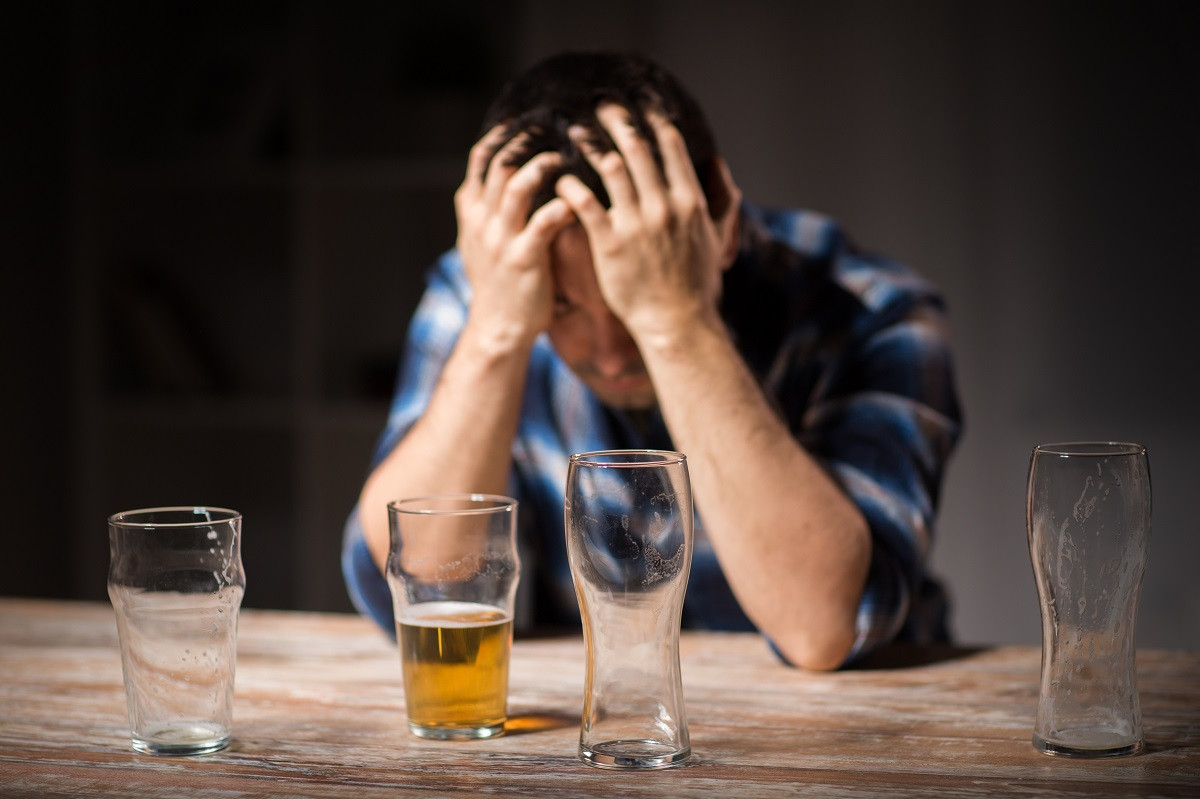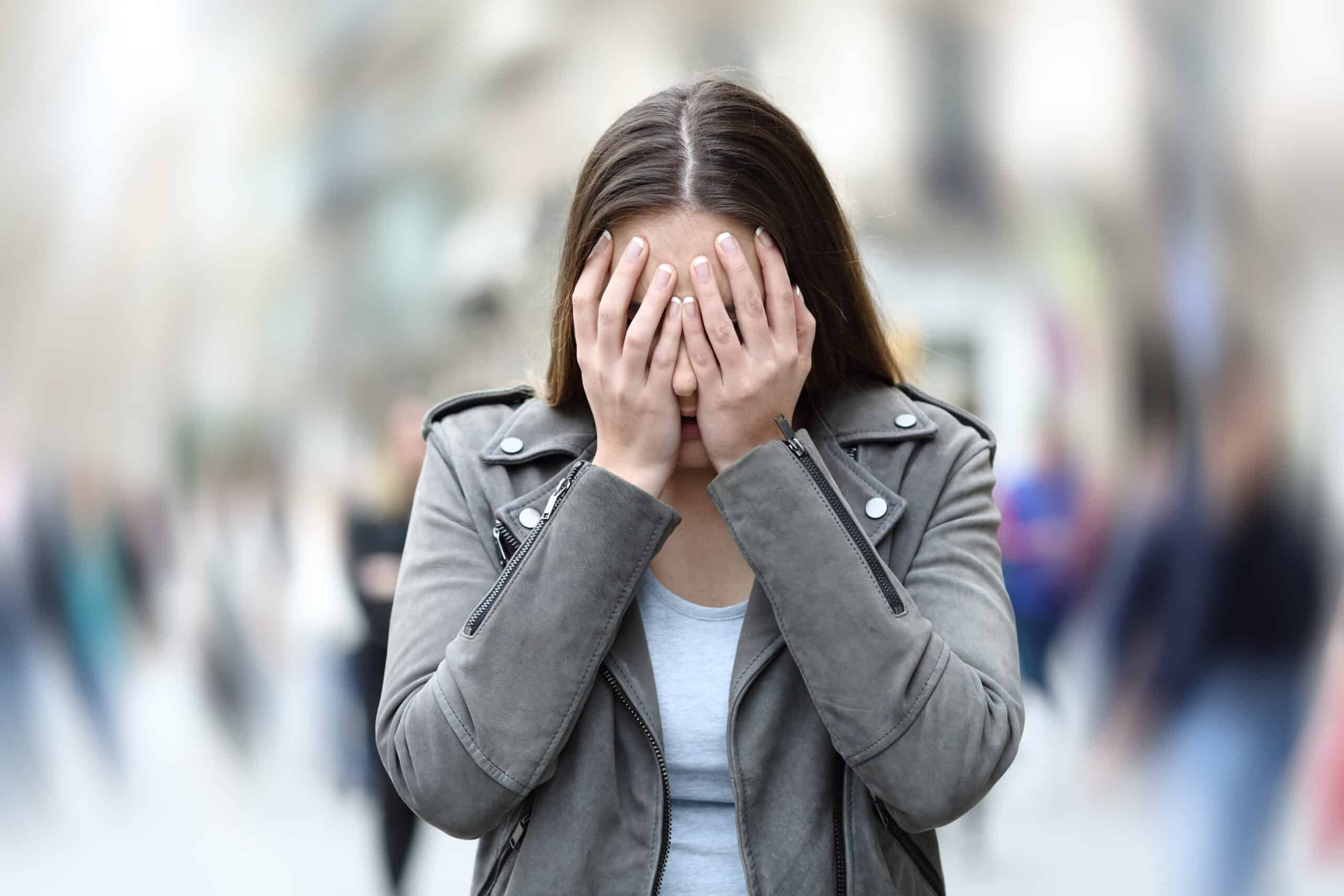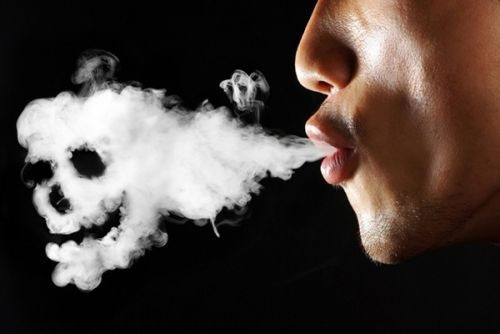Definisi
Alkohol bekerja dengan mempengaruhi otak untuk menimbulkan rasa tenang dan santai dalam waktu singkat. Saat Anda minum lebih banyak, Anda akan menjadi mabuk dan mungkin melakukan hal-hal yang tidak pantas serta berbahaya.
Orang dengan gangguan stres, depresi, atau cemas biasanya menggunakan alkohol untuk membantu meringankan keluhan mereka. Namun, penggunaan alkohol yang berlebihan justru akan memperburuk perilaku dan kesehatan mental.
Tidak jarang seseorang didiagnosis gangguan kesehatan mental dan penyalahgunaan alkohol secara bersamaan. Gejala alkoholisme dan penyakit mental sering kali saling mempengaruhi. Jika tidak diobati, penyakit mental yang terjadi bersamaan dengan ketergantungan alkohol dapat memburuk dan berdampak pada kehidupan pasien dan keluarganya. Diagnosis ganda ini perlu ditangani oleh spesialis kesehatan jiwa dan ahli kesehatan mental lainnya melalui program rehabilitasi.
Penyebab
Otak bergantung pada keseimbangan neurotransmitter atau zat kimia yang bertugas mengirim sinyal dari satu saraf ke saraf lainnya. Jika terjadi ketidakseimbangan zat kimia otak, dapat timbul masalah kesehatan mental atau gangguan perilaku. Sementara, alkohol adalah jenis depresan yang dapat mengganggu keseimbangan zat kimia otak. Sehingga, konsumsi alkohol dapat mempengaruhi pikiran, perasaan, perilaku, dan bahkan kesehatan mental jangka panjang.
Sebagai contoh, perasaan tenang yang dialami setelah minum alkohol adalah karena adanya perubahan kimia pada otak. Ketika Anda minum lebih banyak alkohol, perubahan kimia yang terjadi akan semakin meningkat dan memungkinkan terjadi efek kebalikannya, yaitu emosi yang negatif. Efek ini akan berdampak negatif pada kesehatan mental dan perilaku.
Faktor Risiko
Orang yang berisiko mengalami masalah penyalahgunaan alkohol dan memiliki diagnosis ganda antara lain:
- Riwayat keluarga dengan penyalahgunaan alkohol
- Minum alkohol menjadi tradisi dan diajarkan dalam keluarga atau lingkungan
- Tinggal di lingkungan yang mudah mendapatkan alkohol
- Pola minum alkohol yang tidak sehat, yaitu lebih dari 12-15 gelas per minggu
- Minum alkohol berlebihan secara rutin, yaitu 5 gelas atau lebih dalam satu waktu
- Riwayat gangguan kesehatan mental, seperti kecemasan atau depresi
- Memiliki pekerjaan dengan stres tinggi atau penuh tekanan
- Remaja dan dewasa muda yang kurang percaya diri serta tekanan dari teman sebaya
- Mengalami kejadian traumatis, seperti kehilangan orang yang dicintai
Gejala
Beberapa gangguan mental dan perilaku yang dapat timbul akibat penyalahgunaan alkohol adalah:
Gangguan Kecemasan
Untuk orang yang mengalami gangguan cemas, minum alkohol mungkin membantu mereka merasa lebih nyaman. Namun, perasaan ini tidak bertahan lama. Perasaan nyaman terjadi karena adanya perubahan kimia di otak yang efeknya cepat menghilang.
Mengandalkan alkohol untuk menutupi kecemasan juga dapat menyebabkan ketergantungan yang lebih besar dan menimbulkan toleransi terhadap alkohol. Sehingga, Anda perlu minum lebih banyak alkohol untuk mendapatkan perasaan yang sama. Dalam jangka panjang, pola ini akan mengarah pada ketergantungan alkohol.
Perasaan cemas juga bisa terjadi saat mabuk. Bagi sebagian orang, perasaan ini hampir tidak disadari. Namun jika sudah memiliki gangguan cemas sebelumnya, efek mabuk dapat memperburuk gejala cemas. Minum alkohol juga dapat membuat seseorang merasa lebih cemas pada situasi tertentu.
Gangguan Depresi
Gangguan depresi dan konsumsi alkohol seperti lingkaran setan. Orang minum alkohol untuk mengatasi depresinya. Sebaliknya, konsumsi alkohol berlebihan justru memperberat gangguan depresi. Alkohol mempengaruhi sistem kimia saraf yang penting dalam mengatur suasana hati. Konsumsi alkohol berlebihan atau berhenti minum secara tiba-tiba dapat mengganggu suasana hati.
Gangguan Bipolar
Gangguan bipolar adalah gangguan perubahan suasana hati atau mood yang tidak teratur dan berfluktuasi dari mood yang tertinggi atau sangat gembira berubah ke mood yang paling rendah atau sangat sedih. Perubahan mood yang drastis ini dapat menimbulkan berbagai gejala mental dan fisik. Seseorang dengan gangguan bipolar memiliki risiko lebih tinggi untuk mengalami gangguan penyalahgunaan zat, termasuk alkoholisme. Kondisi ini sangat berbahaya karena sebaliknya, alkohol dapat memperburuk gangguan bipolar.
Obsessive-Compulsive Disorder (OCD)
OCD merupakan salah satu jenis gangguan kecemasan berupa obsesi tidak terkendali yang memicu perilaku kompulsif. Perilaku kompulsif adalah perilaku yang dilakukan berulang untuk menghilangkan kecemasan. Perilaku kompulsif akan terus dilakukan meskipun berdampak negatif bagi kesehatan atau kehidupan penderitanya.
Sebagai cara untuk mengalihkan perhatian dari pikiran atau perilaku yang mengganggu, beberapa orang dengan OCD beralih ke penggunaan alkohol. Diperkirakan 24% orang dengan OCD juga menderita gangguan penggunaan zat, termasuk penyalahgunaan alkohol. Bukannya membantu menenangkan dan melepaskan diri dari ketakutan, konsumsi alkohol justru akan memperburuk gejala OCD.
Mengandalkan alkohol sebagai metode pengobatan OCD dapat dengan cepat berubah menjadi kecanduan yang berbahaya. Tanpa perawatan yang tepat, gangguan alkoholisme dan OCD dapat bertahan seumur hidup, termasuk komplikasi kesehatan dan gangguan emosional yang ditimbulkannya.
Promiskuitas (Berhubungan Seksual)
Ketika beberapa peminum terlibat perkelahian, ada peminum lain yang mencari kepuasan nafsu seksual. Budaya kita seolah menggambarkan bahwa alkohol dan seks berjalan bersamaan, dan alkohol digunakan sebagai alasan untuk berperilaku semaunya. Perilaku tidak senonoh yang terkait dengan konsumsi alkohol bervariasi dari yang agak mengganggu hingga tindak kekerasan yang berbahaya. Bahkan, para pakar menyebut alkohol sebagai obat pemerkosaan nomor satu.
Ide bunuh diri, Menyakiti, dan Psikosis
Alkohol juga terkait dengan ide bunuh diri, melukai diri sendiri, dan gangguan psikosis. Psikosis adalah ketika seseorang mengalami gangguan hubungan dengan kenyataan sehingga tidak dapat membedakan mana yang nyata dan tidak nyata. Konsumsi alkohol yang ekstrim atau keracunan alkohol dapat menimbulkan gangguan psikosis. Psikosis juga dapat disebabkan karena berhenti minum secara tiba-tiba.
Alkohol dapat menyebabkan orang kehilangan kendali dan berperilaku impulsif, sehingga menimbulkan ide berbahaya, termasuk melukai diri sendiri dan bahkan bunuh diri. Ada hubungan yang kuat antara konsumsi alkohol berlebihan dengan pikiran bunuh diri, upaya bunuh diri, dan kematian akibat bunuh diri.
Diagnosis
Dokter akan melakukan wawancara riwayat kesehatan Anda dan keluarga serta pemeriksaan fisik dan kejiwaan untuk mengetahui faktor risiko Anda terhadap kedua gangguan tersebut. Pemeriksaan ini juga membantu menyingkirkan kondisi lain yang mungkin menyebabkan keluhan.
Jika Anda didiagnosis dengan salah satu kondisi ini, dokter juga akan bertanya tentang gejala yang lain. Hal ini wajar pada penegakkan diagnosis karena keduanya sering terjadi bersamaan.
Tata Laksana
Mengobati salah satu dari gangguan mental dan perilaku serta penyalahgunaan alkohol dapat memperbaiki gejala keduanya. Namun untuk hasil terbaik, dokter akan mengobatinya secara bersamaan. Penanganan untuk penyalahgunaan alkohol dan gangguan mental/perilaku secara umum hampir sama. Berikut penanganan yang dapat dilakukan pada penyalahgunaan alkohol dan depresi:
Obat-obatan
Alkohol dapat mempengaruhi senyawa kimia di otak sehingga memperburuk depresi. Obat antidepresan dapat membantu menormalkan senyawa kimia otak dan meringankan gejala depresi. Selain itu, dokter juga dapat meresepkan obat-obatan untuk mengurangi kecanduan alkohol.
Rehabilitasi
Orang dengan gangguan penggunaan alkohol sering mengalami ketergantungan fisik. Berhenti secara tiba-tiba dapat menyebabkan gejala putus zat. Gejala ini bisa parah dan bahkan mengancam jiwa.
Dengan melakukan rehabilitasi, pasien akan dibantu secara medis saat mengalami gejala putus zat. Pasien juga dapat sekaligus menjalani terapi untuk mengatasi gangguan mentalnya. Selama terapi, pasien akan mempelajari mekanisme koping atau pertahanan diri agar dapat hidup normal kembali tanpa alkohol.
Terapi
Terapi perilaku kognitif (CBT) adalah jenis psikoterapi. Terapi ini membantu orang memahami peristiwa dan proses berpikir yang mengarah pada depresi dan penyalahgunaan zat. CBT juga akan mengajari cara mengubah pikiran dan perilaku menjadi lebih baik dan membantu menghindari penyalahgunaan alkohol.
Jika Anda menggunakan alkohol untuk mengatasi gangguan mental, Anda mungkin akan merasa berhasil. Namun, langkah tersebut justru menyebabkan masalah bagi Anda dalam jangka panjang. Jika Anda memiliki gangguan kecemasan, penyalahgunaan dan penghentian alkohol secara mendadak akan memperburuk gejala.
Untuk mengurangi stres atau kecemasan tanpa alkohol, cobalah dengan metode olahraga atau relaksasi, seperti meditasi atau yoga. Anda juga dapat mencoba teknik pernapasan saat merasa khawatir atau cemas. Bercerita pada orang yang dipercaya juga dapat membantu mengurangi kecemasan.
Jika keluhan belum membaik, penting bagi Anda untuk mencari bantuan dokter atau ahli kesehatan mental. Ada banyak pengobatan yang efektif untuk kecemasan dan penyalahgunaan alkohol, termasuk terapi individu, terapi kelompok, obat-obatan, atau kombinasi dari metode tersebut.
Komplikasi
Kedua gangguan ganda ini dapat merusak kesehatan, hubungan, pekerjaan, dan kualitas hidup Anda jika tidak diobati. Penyalahgunaan alkohol sendiri dapat menyebabkan kecelakaan, cedera, kekerasan seksual, overdosis, atau kematian mendadak. Komplikasi yang paling buruk dari gangguan mental dan perilaku ini adalah menyakiti atau menghilangkan nyawa diri sendiri atau orang lain.
Pencegahan
Mencegah gangguan mental dan perilaku akibat alkohol adalah dengan mencegah konsumsi dan penyalahgunaan alkohol itu sendiri. Berikut beberapa tips mencegah penyalahgunaan & kecanduan alkohol:
- Minum dalam jumlah sedikit atau secukupnya
- Mengalihkan keinginan minum alkohol dengan aktivitas lain seperti makan, berbincang dengan orang lain, atau minum minuman non-alkohol
- Hindari pemicu yang membuat mengkonsumsi alkohol
- Jangan menghadiri pertemuan atau perayaan yang menyediakan alkohol
- Hindari orang-orang yang minum banyak alkohol atau mendorong Anda untuk minum
- Jangan menyimpan alkohol di rumah
- Hindari orang dan situasi yang mengingatkan Anda tentang trauma masa lalu
- Jangan tinggal di tempat yang memiliki akses mudah ke alkohol
- Pelajari mekanisme koping yang sehat untuk mencegah minum secara emosional
- Minta dukungan teman dan keluarga untuk membantu mengatur kebiasaan minum, menghindari pemicu, dan mengajarkan mekanisme koping yang sehat
Kapan harus ke dokter?
Jika Anda atau orang yang Anda kenal memiliki gejala gangguan seperti yang disebutkan di atas, segera konsultasi dengan dokter ataupun psikiater. Penanganan yang cepat dan tepat dapat mencegah perburukan gejala dan komplikasi.
Jika terjadi kondisi darurat seperti timbul tindak kekerasan, ide bunuh diri, atau pembunuhan, segera hubungi petugas terkait seperti polisi atau nomor telepon darurat setempat. Setelah kondisi darurat dapat distabilkan, segera bawa pasien ke unit gawat darurat rumah sakit untuk mendapat pertolongan medis.
- dr Anita Larasati Priyono
Heubeck E. (2021). What’s your drinking personality?. Retrieved 14 February 2022, from https://www.webmd.com/men/features/whats-your-drinking-personality
WebMD Editorial Contributors. (2021). What to know about alcohol and mental health. Retrieved 13 February 2022, from https://www.webmd.com/mental-health/addiction/what-to-know-about-alcohol-and-mental-health
Holland K. (2019). Understanding the link between alcohol use and depression. Retrieved 14 February 2022, from https://www.healthline.com/health/mental-health/alcohol-and-depression
Watson S. (2020). Alcohol and depression. Retrieved 14 February 2022, from https://www.webmd.com/depression/guide/alcohol-and-depresssion#091e9c5e80349544-2-5
Sheppard S. (2021). What's the connection between alcohol and depression?. Retrieved 14 February 2022, from https://www.verywellmind.com/whats-the-connection-between-alcohol-and-depression-5179848#toc-contributing-factors
Cherney K. (2019). Alcohol and anxiety. Retrieved 14 February 2022, from https://www.healthline.com/health/alcohol-and-anxiety
Drillinger M. (2021). Alcohol and anxiety: what you should know. Retrieved 14 February 2022, from https://www.webmd.com/connect-to-care/addiction-treatment-recovery/alcohol/alcohol-anxiety-dual-diagnosis
Ankrom S. (2020). The risks of using alcohol to relieve anxiety. Retrieved 14 February 2022, from https://www.verywellmind.com/using-alcohol-to-relieve-anxiety-2584210
Yang Z. (2017). Alcohol-related psychosis. Retrieved 14 February 2022, from https://emedicine.medscape.com/article/289848-overview





/62d244a608bfb.jpg)





